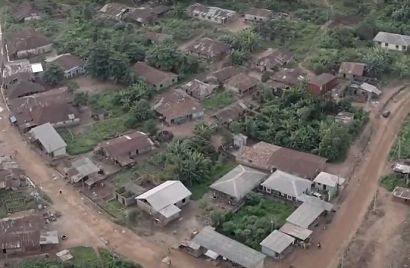
The Mokoloki project demonstrates a financially viable business model that could provide electricity access to millions living in underserved rural communities throughout the country. Mokoloki, a rural community in Ogun State, previously struggled with intermittent electricity access and poor voltage quality prior to this project. However, its bustling market and proximity to main trade routes promised major commercial activity, making it an ideal site for an undergrid minigrid, as explained in the newly released project brief and article.
An estimated 40 million rural residents are underserved by the main grid in Nigeria. Of these, close to 35 percent could be served by over 4,000 commercially viable undergrid minigrid systems. Nationwide, the revenue opportunity from these minigrids is approximately N400 billion ($1 billion) per year.
Using a modular design approach, the solar-hybrid minigrid is initially providing 100 kW of generation for an estimated peak load of 88 kW, with an expansion plan in place for anticipated load growth. After three months of operation, it is serving 230 households and over 60 commercial and public enterprises, including the local health centre. RMI hopes the success of this undergrid minigrid, as a replicable solution, will jump-start similar partnerships that serve customers across Nigeria and sub-Saharan Africa. Both IBEDC and Nayo Tech intend to scale up their undergrid portfolios and are actively exploring project and investment opportunities.
“Part of the work we do at REA is creating an enabling environment for private sector-led projects to thrive” said Ahmad Salihijo, MD/CEO of the REA. “We are delighted to witness strategic collaborations geared toward accelerating energy access in unserved and underserved communities across Nigeria. What makes this project unique, beyond being Nigeria’s first commercial undergrid minigrid in a rural community, is the social and economic transformation that the project ultimately brings to the Mokoloki community. I commend RMI, IBEDC, Nayo Tech and all other stakeholders involved in carrying out this feat”.
Engineer John Ayodele, IBEDC chief operating officer, added that by the time the project stabilises, Mokoloki will be like a town and that it will have more regular power supply than cities.
IBEDC was the first Nigerian distribution company to initiate a tripartite contract negotiation with a rural community as required for interconnected minigrids by regulation.
For additional information:

